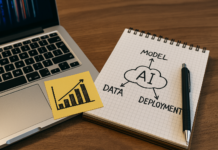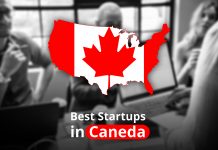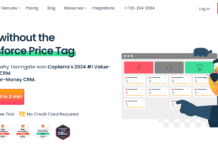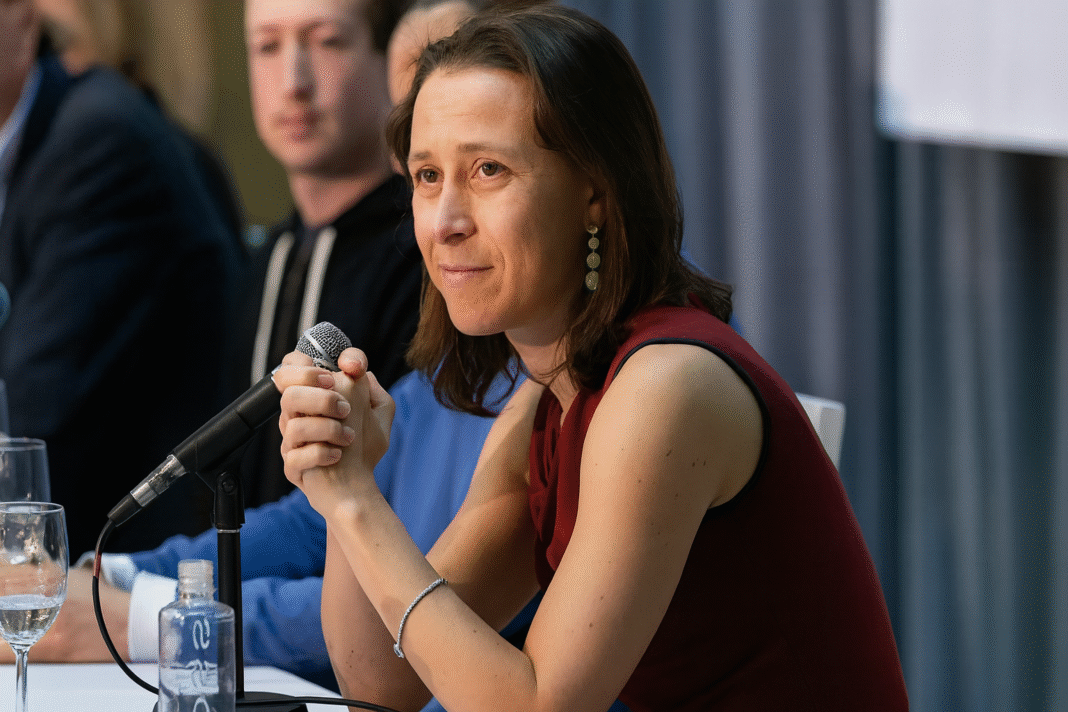The Entrepreneurial Journey of Anne Wojcicki: Building 23andMe and Consumer Genomics
Anne Wojcicki is a leading figure in biotechnology and one of the most recognized entrepreneurs in modern healthcare. As the cofounder and CEO of 23andMe, she has transformed how individuals engage with their genetic information and how consumer genomics integrates into medicine, research, and personal health. Her career illustrates the intersection of scientific literacy, data ethics, and entrepreneurial discipline.
This article explores the early life and career of Anne Wojcicki, the founding of 23andMe, and how her leadership turned a bold idea into a global movement that changed the way people understand DNA.
Early Life and Educational Background
Anne Wojcicki was born in San Mateo County, California, in 1973. Growing up in a family that valued education and scientific curiosity, she was surrounded by an environment that encouraged critical thinking and experimentation. Her mother was an educator, and her father, a physicist at Stanford University, instilled in her an analytical and evidence-based approach to problem-solving.
She attended Yale University, where she earned a bachelor’s degree in biology. During her time there, Anne Wojcicki focused on molecular biology and biochemistry, developing an early fascination with how genetics shapes human health. Her scientific training would later become a cornerstone of her entrepreneurial vision.
Unlike many of her peers who pursued academic research, she wanted to apply scientific principles in a way that directly impacted people’s lives. This mindset eventually led her to blend science with business — a combination that defined her later success.
Early Career and Financial Insight
After college, Anne Wojcicki worked as a healthcare and biotechnology analyst on Wall Street. For nearly a decade, she analyzed companies in the pharmaceutical and medical sectors, studying how new therapies reached markets and how financial structures affected innovation.
This period gave her a comprehensive understanding of the business side of healthcare — particularly how slow, expensive, and inefficient drug development could be. She also observed how most medical decisions were reactive, focusing on treatment rather than prevention.
Her experience in finance inspired her to imagine a system where people could access their genetic information directly and make proactive health decisions. She realized that if individuals understood their biological risks early, they could modify behavior, improve outcomes, and reduce overall healthcare costs. This realization became the foundation for her future company.
Founding 23andMe
In 2006, Anne Wojcicki co-founded 23andMe alongside Linda Avey and Paul Cusenza. The mission was simple yet revolutionary: to make personal genetics accessible to everyone. The name “23andMe” refers to the 23 pairs of chromosomes that carry human DNA.
At a time when genome sequencing was expensive and complex, Anne Wojcicki envisioned a direct-to-consumer model. Customers could submit a saliva sample, receive insights about their ancestry and health, and choose to participate in genetic research if they wished.
This concept was groundbreaking because it placed control of genetic information in the hands of individuals, rather than institutions. For the first time, people could understand their own DNA without needing to go through hospitals or research labs.
Product Development and Innovation
The early 23andMe kit was based on genotyping — identifying key genetic variants rather than sequencing the entire genome. This made testing affordable and scalable. Users mailed in a saliva sample, and after analysis, they accessed results through an online platform that presented complex genetic information in an easy-to-understand format.
Anne Wojcicki emphasized transparency and education. The platform included detailed explanations about what each result meant, the difference between correlation and causation, and the importance of consulting medical professionals before making health decisions.
This educational approach distinguished 23andMe from other startups. It positioned the company as both a data platform and a learning tool, helping consumers understand how genetics interacts with lifestyle and environment.
Early Challenges and Regulatory Hurdles
Despite its innovative model, 23andMe faced significant regulatory challenges. In 2013, the U.S. Food and Drug Administration (FDA) ordered the company to halt health-related genetic reports until further validation could prove their accuracy and reliability.
For many startups, such an event could have been fatal. But Anne Wojcicki treated it as an opportunity to strengthen the company. She restructured compliance systems, enhanced data accuracy, and invested in scientific validation studies.
By 2017, 23andMe received FDA approval to resume providing health reports, making it the first and only direct-to-consumer genetic testing company authorized to deliver information about genetic risks for diseases such as Parkinson’s and Alzheimer’s.
This episode demonstrated Anne Wojcicki’s resilience and commitment to building long-term credibility. Rather than avoiding regulation, she embraced it as a path to consumer trust.
Building a Data-Driven Business Model
Anne Wojcicki’s vision for 23andMe extended beyond consumer testing. She recognized that aggregated, consented genetic data could become a valuable resource for research and pharmaceutical development.
Under her leadership, 23andMe created a dual-purpose model: empowering consumers with personal health insights while partnering with research organizations to accelerate scientific discovery. With millions of customers voluntarily sharing data, the company built one of the largest genetic databases in the world.
This data enabled 23andMe to collaborate with major pharmaceutical firms such as GlaxoSmithKline, leading to drug discovery partnerships focused on personalized medicine.
Anne Wojcicki’s strategy was clear — by combining consumer engagement with research infrastructure, 23andMe could create a sustainable ecosystem where data generated by individuals contributed to improving global healthcare.
Leadership Philosophy and Corporate Culture
Anne Wojcicki is known for her pragmatic and analytical leadership style. She emphasizes clarity, ethics, and long-term vision over short-term profit. Inside 23andMe, she promotes a culture that blends scientific precision with consumer empathy.
Employees are encouraged to challenge assumptions, validate data rigorously, and communicate results in accessible language. This balance of scientific depth and simplicity has helped 23andMe maintain credibility among both professionals and everyday users.
Wojcicki also values transparency — with her team and with customers. She frequently states that trust is the company’s most important asset. Every consent form, privacy notice, and product update reflects her belief that users must always understand how their data is used and protected.
Impact on Public Awareness and Science
Anne Wojcicki’s work has had a profound impact on how society perceives genetics. Before 23andMe, genomics was confined to laboratories and specialists. Her company democratized access, making genetics part of daily conversation.
Millions of people learned about ancestry, inherited traits, and disease risk — not from doctors, but from an easy-to-use platform. This shift encouraged public engagement in science and introduced new possibilities for preventive medicine.
Beyond consumer awareness, the aggregated research from 23andMe has contributed to scientific breakthroughs, including genome-wide association studies (GWAS) that identify genetic links to various diseases. Under Anne Wojcicki’s leadership, the company evolved from a consumer product into a scientific collaborator.
You can explore other founder stories similar to Anne Wojcicki’s on this page.
Entrepreneurial Values and Long-Term Vision
Anne Wojcicki’s success is rooted in a clear set of entrepreneurial values — curiosity, persistence, and ethical responsibility. She believes in challenging conventional systems and empowering individuals with knowledge.
Her long-term vision extends beyond consumer genomics. She envisions a world where personalized medicine becomes standard, where preventive healthcare replaces reactive treatment, and where individuals actively participate in their own well-being.
To achieve this, she continues to push 23andMe toward integrating artificial intelligence, advanced analytics, and deeper collaboration with healthcare systems.
Expanding 23andMe Beyond Consumer Testing
After achieving success in direct-to-consumer testing, Anne Wojcicki shifted focus toward expanding 23andMe’s influence in the broader healthcare ecosystem. She recognized that the company’s vast dataset could serve as a foundation for discovery in drug development and precision medicine.
Under her leadership, 23andMe entered partnerships with research institutions and pharmaceutical companies. These collaborations aimed to identify genetic markers for diseases and accelerate therapeutic research. In 2018, the company announced a major collaboration with GlaxoSmithKline (GSK), combining 23andMe’s genetic data with GSK’s drug discovery expertise.
Anne Wojcicki emphasized that such collaborations must benefit both science and society. She ensured that every partnership followed strict ethical standards, maintaining transparency about how de-identified data was used. This approach reinforced public trust while advancing 23andMe’s credibility within the research community.
Going Public and Scaling Operations
In 2021, Anne Wojcicki led 23andMe through a historic transition — going public through a merger with a special-purpose acquisition company (SPAC). The decision was both strategic and symbolic: it signaled the maturity of consumer genomics as an industry and underscored Wojcicki’s commitment to transparency.
Becoming a publicly traded company allowed 23andMe to expand investments in research, artificial intelligence, and new product lines. Anne Wojcicki also sought to broaden the company’s reach internationally, adapting its services to different markets while respecting regional regulations on genetics and data privacy.
Going public brought new scrutiny and expectations. However, Wojcicki saw this as an opportunity to reinforce long-term governance, scientific accountability, and shareholder communication. She positioned 23andMe not merely as a testing company but as a biotechnology enterprise with global relevance.
Integration of Artificial Intelligence and Data Science
Anne Wojcicki recognized that the future of genomics lies in advanced data interpretation. To handle the growing volume of genetic and phenotypic data, she expanded the company’s data science teams and integrated artificial intelligence into core operations.
Machine learning models helped identify patterns between genetic markers and health outcomes, enabling more accurate risk assessments. These models also accelerated the discovery process for pharmaceutical research partners.
Anne Wojcicki has stated that AI will transform how people understand their biology. By integrating predictive analytics with user-friendly interfaces, 23andMe can provide insights that evolve continuously as new research emerges.
This commitment to innovation illustrates her ability to combine scientific rigor with technological foresight — a hallmark of her entrepreneurial mindset.
Ethics, Privacy, and Trust in Genomics
From the beginning, Anne Wojcicki has emphasized that genetic information is deeply personal and must be protected with the highest ethical standards. She led 23andMe in developing transparent consent models, giving customers full control over how their data is used in research.
The company’s privacy framework allows users to opt in or out of studies at any time, review how their data contributes to discoveries, and access detailed security documentation. These practices reflect Wojcicki’s belief that innovation must coexist with trust.
Her insistence on transparency set a benchmark for the entire consumer genetics industry. By treating data as a shared responsibility between company and customer, she positioned 23andMe as a trusted intermediary in an era of data skepticism.
Leadership Philosophy and Organizational Culture
Anne Wojcicki’s leadership philosophy blends scientific precision with empathy. Inside 23andMe, she fosters a culture that encourages questioning, experimentation, and accountability. Her management style is collaborative yet demanding — she expects rigorous reasoning, clear metrics, and honest communication.
Colleagues describe her as deeply involved in product discussions, from data visualization to the wording of health reports. This attention to detail ensures that the company maintains consistency between scientific accuracy and user experience.
She often reminds her teams that 23andMe’s success depends on the trust of its customers. Every design choice — from report layout to consent forms — must reinforce that trust. This principle has become part of the company’s DNA, shaping both culture and brand identity.
Women in Leadership and STEM Advocacy
Anne Wojcicki’s influence extends beyond business. She has become a role model for women in science, technology, engineering, and mathematics (STEM). Her success story demonstrates that leadership in science-based startups is not limited by gender but defined by vision and persistence.
She actively promotes diversity in the workplace, emphasizing that inclusive teams produce better science and stronger products. At 23andMe, recruitment and mentorship programs encourage women and underrepresented groups to pursue careers in biotechnology and data science.
Anne Wojcicki often speaks about the importance of resilience and authenticity for women leaders. She argues that leadership in science-driven industries requires both intellectual rigor and emotional intelligence — a combination she has consistently embodied.
Scientific Impact and Research Achievements
Under Anne Wojcicki’s leadership, 23andMe has contributed to significant advancements in genetic research. The company’s database, derived from millions of consenting customers, has become one of the largest resources for genome-wide association studies (GWAS).
This data has helped scientists identify new genetic variants linked to conditions such as asthma, diabetes, and depression. Moreover, 23andMe has published numerous peer-reviewed studies, solidifying its reputation as both a consumer company and a research institution.
Wojcicki’s goal has always been dual: democratize access to genetic information while advancing global scientific understanding. By connecting everyday users with the research community, she has blurred the line between participants and contributors, making science more collaborative than ever before.
If you are interested in discovering similar founder journeys, you can explore other visionary leaders on this page.
Challenges and Evolution
Like any pioneering entrepreneur, Anne Wojcicki has faced setbacks. The company has navigated regulatory delays, privacy concerns, and shifting public perceptions about genetic testing.
However, she approaches each challenge as an opportunity to learn and adapt. When regulations tightened, she strengthened compliance. When skepticism rose, she increased educational outreach. This flexibility — grounded in data and evidence — has allowed 23andMe to remain resilient and relevant.
Anne Wojcicki often notes that leadership requires patience and integrity. Her ability to maintain long-term vision while responding to short-term pressures distinguishes her from many of her peers in Silicon Valley.
Future Vision and Emerging Opportunities
Anne Wojcicki’s long-term vision for 23andMe extends far beyond ancestry and risk reports. She envisions an ecosystem where individuals can integrate genetic data with lifestyle tracking, medical records, and environmental information to build a complete picture of their health.
She aims to make genetics part of everyday healthcare from preventive screenings to personalized treatments. The company’s next frontier includes pharmacogenomics, rare disease research, and integration with telemedicine platforms.
By positioning 23andMe at the intersection of consumer technology and precision medicine, Anne Wojcicki continues to redefine how healthcare evolves in the digital age.
Lessons for Entrepreneurs and Innovators
Anne Wojcicki’s entrepreneurial journey offers lessons for anyone building mission-driven companies:
-
Start with a clear purpose. Her focus on empowering individuals has guided every major decision.
-
Embrace regulation as structure, not limitation. She used compliance to build credibility.
-
Invest in trust. Transparent communication builds long-term value beyond profit.
-
Balance innovation with ethics. Responsible growth sustains progress.
-
Encourage scientific literacy. Educated customers become advocates, not just users.
Her story shows that combining scientific understanding with entrepreneurial courage can create industries that didn’t exist before.
Global Influence and Cultural Shift
Anne Wojcicki’s impact goes beyond 23andMe’s products. She has changed public attitudes toward genetics, making DNA testing a mainstream conversation. The rise of personalized medicine owes much to her persistence in bridging science and society.
Governments, research institutes, and startups around the world have followed 23andMe’s model, adopting similar frameworks for consent, transparency, and consumer engagement. Through her leadership, Anne Wojcicki has demonstrated that biotechnology can be both profitable and socially responsible.
Her influence also extends to the investment community. By proving that complex science can succeed in the consumer market, she inspired a new generation of biotech entrepreneurs who prioritize accessibility, clarity, and ethical innovation.
Conclusion
Anne Wojcicki’s career encapsulates the essence of modern entrepreneurship — merging science, technology, and human understanding. From her early days as a Wall Street analyst to becoming one of the most influential women in biotechnology, her journey reflects curiosity, courage, and commitment to public good.
Through 23andMe, she has redefined what it means to empower consumers with scientific knowledge. By turning genetic data into actionable insight, she bridged the gap between research and real life.
Her leadership has proven that innovation is not only about invention but also about responsibility. Anne Wojcicki’s legacy lies in showing that ethical entrepreneurship can transform both industries and mindsets setting a new standard for how technology serves humanity.
















































